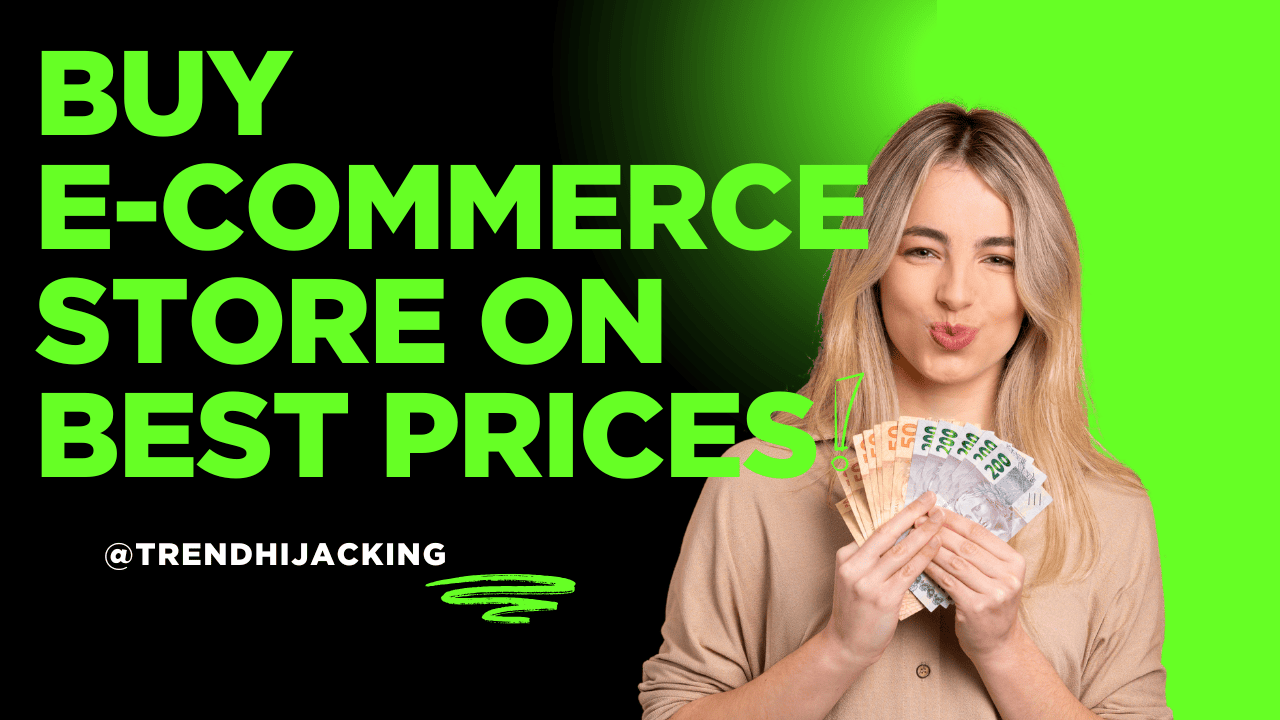The digital age has made it easier than ever to own a business. One of the most appealing entry points into entrepreneurship today is buying an existing online retailer for sale. Whether you’re seeking a side hustle, full-time income, or scalable investment, purchasing an established online store offers distinct advantages over starting from scratch.
However, jumping in blindly can be risky. This guide will walk you through what you need to know, what to look for, and how to make a smart, profitable decision.
Why Consider Buying an Online Retailer Instead of Starting One?
Starting a new online store can be exciting, but it also comes with a long list of challenges: building a customer base, driving traffic, testing products, and finding reliable suppliers. Buying an existing online retailer for sale can eliminate many of these pain points.
Here’s why buying may be better than building:
-
Existing customer base: You gain immediate access to loyal, paying customers.
-
Proven business model: You can review financials and operations before investing.
-
Quicker returns: With revenue already flowing in, you’re not starting from zero.
-
Brand recognition: No need to build awareness from scratch.
-
Established SEO and social presence: Save time and cost on digital marketing efforts.
Types of Online Retail Stores You Can Buy
The world of e-commerce is vast. Here are the common types of online retailers available for sale:
-
Dropshipping Stores: Low inventory costs, suppliers fulfill orders.
-
Private Label Stores: Brand your own product line.
-
Print-on-Demand Stores: Customized items printed and shipped per order.
-
Fulfilled by Amazon (FBA): Amazon handles storage, shipping, and returns.
-
Direct-to-Consumer (DTC): Manage inventory and sell directly from your website.
Each model has pros and cons. Match your choice with your risk tolerance, skill set, and available time.
Where to Find an Online Retailer for Sale
There are several trusted platforms where sellers list their online stores. Some of the most reliable include:
-
Empire Flippers
-
Flippa
-
FE International
-
Shopify Exchange Marketplace
-
BizBuySell
-
MicroAcquire (now Acquire.com)
Make sure to compare multiple listings and look beyond flashy income numbers. Focus on sustainability, not just short-term revenue spikes.
Essential Factors to Evaluate Before Purchasing
Buying an online retailer for sale involves more than reading a sales pitch. You need to perform detailed due diligence:
1. Financial Records
Review the store’s profit and loss statements, expenses, ad spend, and net margins. Look for trends rather than one-time spikes.
2. Traffic Sources
Use Google Analytics to verify traffic volume, channels (organic, paid, referral), bounce rates, and time on site. Sustainable, organic traffic is often more valuable than paid ads.
3. Product Demand and Niche
Is the niche evergreen or seasonal? Are the products trending, or is demand fading? A narrow niche can limit growth; a broader one may face heavy competition.
4. Supplier Agreements
For dropshipping or inventory-based businesses, check supplier reliability. Are their contracts transferable? What are the shipping times and return policies?
5. Email Lists and CRM
A high-quality customer list adds tremendous value. Check email open rates, segmentation strategies, and engagement metrics.
6. Platform and Technology Stack
Is the store hosted on Shopify, WooCommerce, or a custom platform? Is it mobile-optimized and easy to maintain? A complex backend could mean additional costs.
Red Flags to Watch For
Not every deal is what it seems. Here are warning signs to watch for:
-
Unverified revenue claims
-
Sudden recent traffic surges that don’t align with historical data
-
No repeat customers or low lifetime value
-
Heavily discounted products to boost short-term sales
-
Negative customer reviews or poor Trustpilot scores
If something feels off, it probably is. When in doubt, consult with a broker or e-commerce expert.
Transition Process After Purchase
Buying the business is just the first step. Make sure there’s a clear transition plan in place, including:
-
Website and domain transfer
-
Ownership of social media accounts
-
Hand-off of supplier contacts and fulfillment processes
-
Access to email marketing tools and customer databases
-
Ongoing support from the seller for at least 30–60 days
Smooth transitions reduce customer churn and help maintain revenue flow.
How Much Should You Pay?
Online businesses are typically valued based on monthly net profit. A good rule of thumb is a 20x to 40x multiple of average monthly profit. So, if a store makes $2,000 per month in profit, it might sell for $40,000–$80,000.
Factors that affect valuation:
-
Age of the business
-
Traffic sources
-
Email subscriber base
-
Quality of branding
-
Stability of earnings
Don’t just chase low prices—chase value.
Is It Worth Buying an Online Retailer?
In many cases, yes. Buying an online retailer for sale can jumpstart your journey into entrepreneurship and allow you to generate income right away. But the success of that decision depends on your due diligence, risk management, and post-purchase strategy.
Conclusion
The digital marketplace is booming, and opportunities abound for smart, data-driven investors. Whether you’re entering e-commerce for the first time or looking to expand your portfolio, evaluating an online retailer for sale with the right approach can lead to significant financial gains. Take your time, dig into the details, and be strategic. The right store is out there—you just have to find it.
